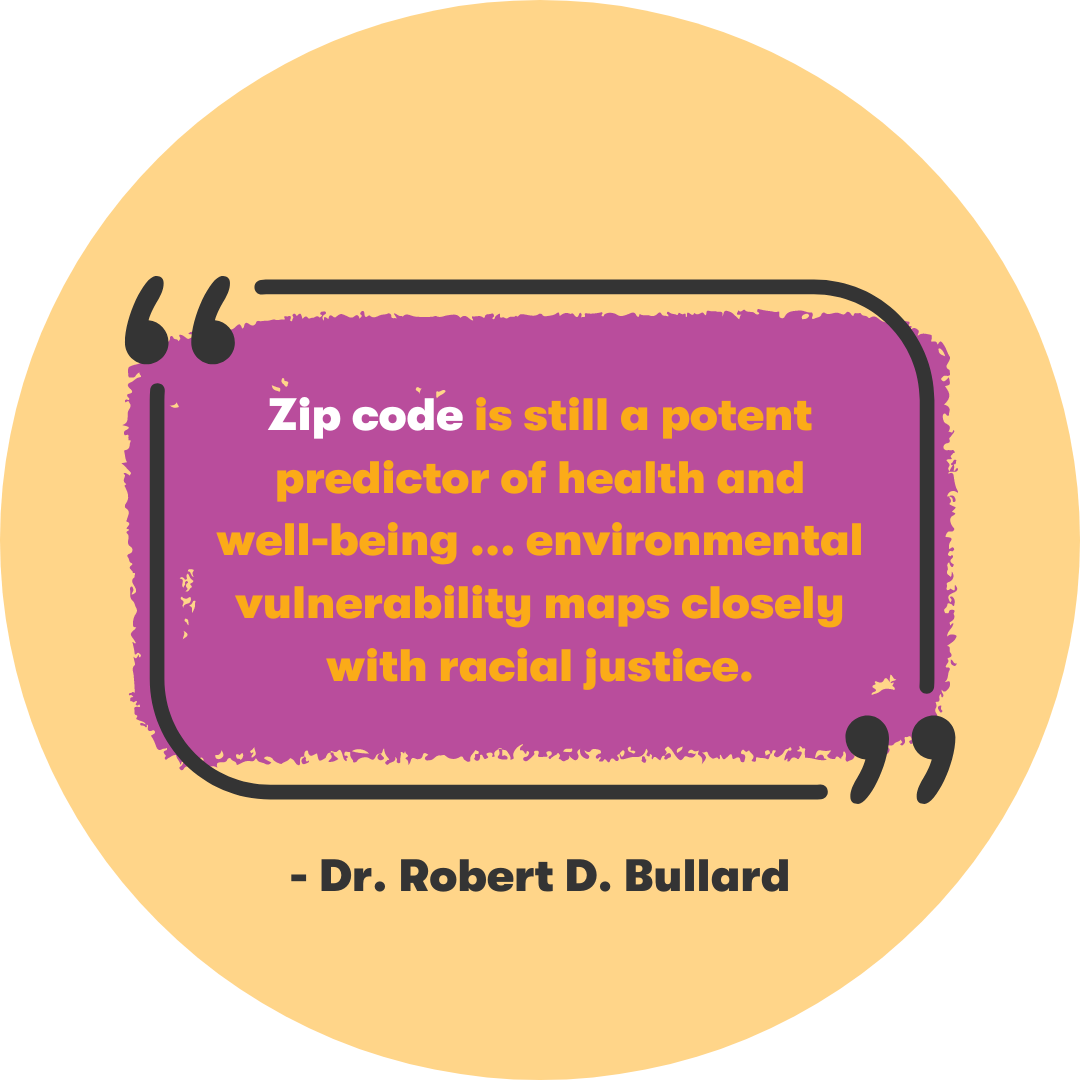Did you know some urban neighborhoods in Nashville can be up to 17 degrees hotter than in nearby rural areas? The combination of urbanization and climate change could raise urban temperatures to levels that threaten human health, strain energy resources, and compromise economic productivity. Moreover, communities of color are more likely to live in hotter places, putting them at greater risk for heat-related deaths and injuries.
Communities in proximity to I-24 are subject to automobile emissions and the resulting air pollution, particularly because [poorer] neighborhoods don’t have the environmental engineering, like sound barriers and reduced speed limits, that separates the highway from more affluent communities.
A 2016 study by HIDE found that the air quality in and around East Nashville’s James A. Cayce Homes, Nashville's largest public housing complex, was extremely poor. The average home exceeded standards of indoor air pollutants. Playgrounds were built with recycled tires found to be releasing toxic substances into the air. Moreover, residents were disproportionately sick, and experienced the highest rates of asthma in the county. 90% of Cayce residents are African American. The majority of households are led by a single woman and 59% of residents are under the age of 18.

Areas with more concrete and less natural ground tend to be hotter, so urban planning that incorporates trees, parks, white roofs, and rooftop gardens can reduce the effects of heat islands.
We can combat the heat island effect!



Root Nashville is working to plant 500,000 trees across Davidson County by 2050 in order to help reduce this impact at the city level.
Learn more about the Nashville Environmental Justice Initiative’s work to grow a culture of systemic learning around environmental justice in Nashville, develop impactful educational solutions, and connect thought leaders to better mobilize their collective impact.
Post research by Vanderbilt University students, Abby G., Mary-McKenzie G., Lauren M., and Sinead R., in the Fall 2021 Race and the Media class taught by Sophie Bjork-James.
Sources
Layden, M. (2021, July 29). Living in an urban heat island. WSMV Nashville.
Tinley, J. (2004, June 24). Environmental racism? Nashville Scene.